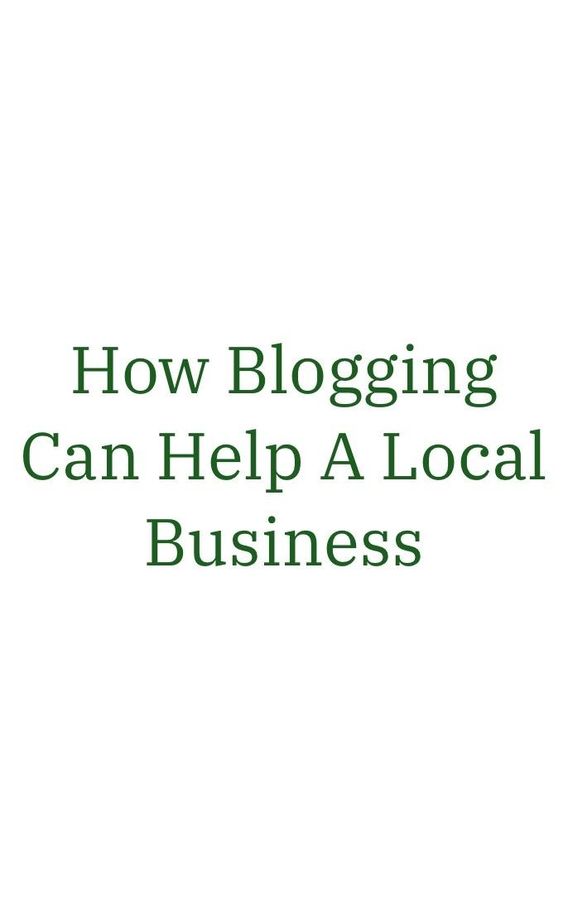
Blogging can be a great way to grow sales for your business over the long-term.
But what if you have a local business? Does it still make sense to invest in blogging if you’re not trying to attract people from all over the world?
The short answer is: Yes.
Blogging does offer an opportunity for a local business. Maybe you’re a restaurant, retailer, dentist, etc. You can definitely see benefits from a long-term blogging strategy.
Here are some things to consider…
1. Long Term SEO Benefit
One of the main reasons any business starts a long-term blogging effort is for the SEO benefit, which is rankings on search engines like Google that bring people to your website.
Each blog post has the potential to rank for certain search phrases and keywords. When this occurs the posts can bring in traffic. This traffic typically doesn’t convert right away to a new customer. But sometimes it does. A person may read a post and remember your brand name. Then maybe when they are in buying mode for your service they search your name and find your website or maybe they just go straight to your location.
But over time you generally see a boost to other pages on your website, such as your homepage. The search engines are smart and it seems that one of the things they consider if your brand reputation. And if you’re helping lots of people with great blog content that the search engine loves and gives good rankings the search engine is also likely to rank your non-blog pages well.
Say you’re a dentist. When someone searches for a dentist in your city they see results. For argument sake let’s say every dentist is equal in every way, but you have been blogging for years and providing lots of helpful content. Search engines may use this to determine that your practice is most worthy of the highest ranking.
2. Content for Multiple Channels
A great thing about blog content is that you can reuse it on other channels.
Today, many businesses have an email newsletter and one or two social media profiles on sites like Instagram and Facebook.
For email newsletters, you can include the links to your new blog posts. You can also use some of the content in your blogs right in your newsletters. There is a chance that your email subscribers aren’t reading all of your blogs.
On social media, you can link to the blog posts you publish. This can generate a little traffic and sometimes a lot. But the social sites and apps typically want to keep their users. They don’t want them to leave to other sites. So they encourage native content, which is content that can be consumed right on their platform.
But you can use your blog content and post right on social sites and apps. You can use snippets from a blog post and post it right on Facebook.
3. Brand Reputation
We kind of looked at this earlier, but it’s worth mentioning again in a little more detail.
In general, having a blog is a way to help your target audience. If they are looking for information in your industry and you’re providing that information you’re providing a service. You’re helping them. Over the long-term that is a great way to build a strong brand reputation.
People like to work with other people that have good reputations and that have helped them in the past.
What To Blog About
In general, the best blogging strategy over the long run is to identify questions your audience is asking and providing answers with your blog posts. This is even something Google specifically states about their rankings. That’s what they aim to do with their rankings and if you aim to do the same you’re aligning your strategy with theirs.
You can listen for questions your existing customers are asking and use those to create titles for blog posts. You can look at popular blogs in your industry and look for popular themes and topics they’re covering. You can even look at forums and message boards to see what people are asking.
And there are some search engine tools you can use to find out what people are searching for and asking on sites like Google.
Conclusion
There are no guarantees with any marketing or sales strategy. Having a blog and even having a great blog doesn’t guarantee that you’ll get rankings and tons of traffic and sales. It’s also a challenge to stick to a regular blogging schedule. That’s why many businesses don’t do it. Or why many start and give up after a few months. But that’s also the opportunity. If your competition isn’t blogging it can be a way to stand out. Even in a local setting.